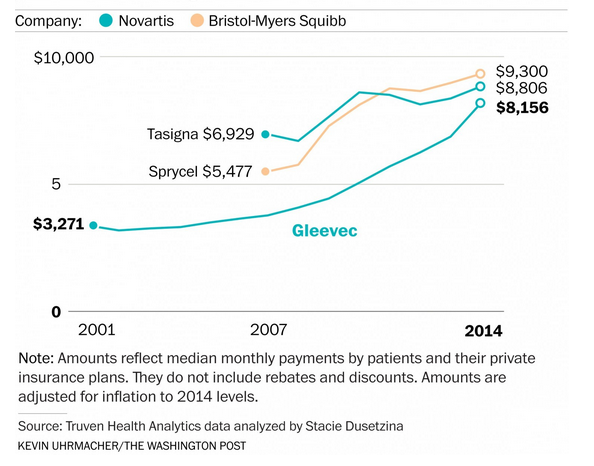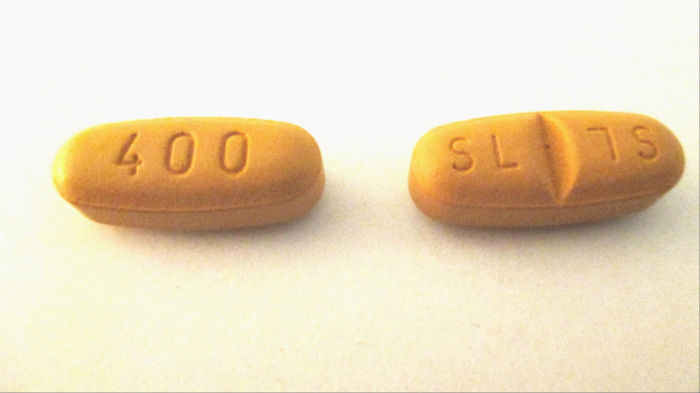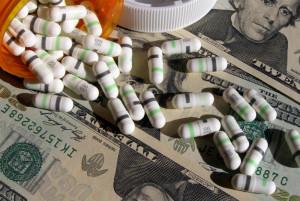by Tod Cooperman, M.D., CEO, PharmacyChecker.com | Mar 31, 2016 | Cancer Drugs, Drug Prices
There has been a lot of news this week about the outrageously high cost of Xtandi, a drug for advanced prostate cancer. Although developed with funding from the U.S. National Institutes of Health (NIH), Xtandi (enzalutamide) is being sold to Americans at about four times the price at which it is sold in other countries. In January, a petition was sent to have the U.S. government step in and require that Xtandi be priced more fairly for Americans. More recently, several congresspeople and senators, including Bernie Sanders, reiterated this request with their own letter to the Secretary of Health and Human Services and the Director of the NIH.
According to the petition, the Japanese company licensed to sell Xtandi, Astellas Pharma Inc., and its U.S. marketing partner, Medivation Inc. charge an average wholesale price of $88.48 per 40 mg capsule in the U.S. However, in Japan the price is just $26.37, in Australia, it is $23.46, and just across the border in Canada the price is only $20.12.
If you only had to take a few capsules of Xtandi for a short time, this might not be such a big deal. But a standard dose of Xtandi is 4 capsules per day for months at a time. That’s 120 pills per month. So the cost of just a one-month supply of 120 pills at the average wholesale price is $10,617. That’s right, over $10,000 per month! If you must get Xtandi and you don’t have insurance which covers it, what are you to do?
First, if you have no insurance or poor insurance and a household income of $100,000 or less, you can apply to get Xtandi for free through Astellas, which may also offer other financial support.
If that doesn’t work for you, another less expensive option (short of travelling to another country) would be to order Xtandi from a verified international online pharmacy, which will send the medication to you from a licensed pharmacy in another country, such as Canada. Currently, several PharmacyChecker.com-verified online pharmacies sell Xtandi for about $41 per 40 mg capsule – about half the cost in the U.S. If you prefer to get your medication from a U.S. pharmacy, many pharmacies offer or accept discount cards which can bring the cost down a little, but only to about $75 per capsule.
It is ridiculous that American taxpayers helped develop this drug but are charged the most to get it. Hopefully, things will change.
Tagged with: Astellas, Cancer medication, Drug Prices, government, Online Pharmacies, prostate cancer, Xtandi
by Gabriel Levitt, President, PharmacyChecker.com and Prescription Justice | Mar 11, 2016 | Cancer Drugs, Drug Prices
An article in the Washington Post yesterday covered the steep rise in the cost of a cancer medication called Gleevec, drug company Novartis’ brand name for imatinib, which is incredibly successful in treating people with chronic myeloid leukemia (CML). Despite its concern with public perception over price at the time, Novartis charged $26,400/year when the drug hit the market in 2001. With today’s price for Gleevec now $126,000/year it seems any concerns by Novartis have gone by the wayside (or did they really exist at all?). One would think and hope that new, similar products would bring down – or at least slow increases of – the price of Gleevec. After all, competition is supposed to drive down prices.
Not in the pharmaceutical industry, at least not until a drug goes off patent. The launch of therapeutically equivalent brand medications to treat CML actually coincided with Gleevec’s steepest price increases. Bristol-Myers Squibb launched Sprycel (dasatinib) in 2006 and Novartis launched a second generation drug called Tasinga (nilotinib) in 2007, both at much higher prices than Gleevec. In 2007, the monthly prices for Gleevec, Sprycel and Tasinga were $3,757, $5,477 and $6,929, respectively. The details can be found in the Post’s article but essentially Gleevec started to play “catch up” to its competitors.
In 2007, the price of Gleevec was 46% less than Tasinga. By 2014, the discount had shrunk to 12% with Gleevec’s price at $8,156/month compared to Tasinga’s price of $9,300/month. Let’s keep in mind that the newer drugs were shown to treat people that Gleevec could not treat, which would soften the argument that these are truly competing products. But soon after their introduction, Sprycel and Tasinga were found to successfully treat people with newly diagnosed cases of CML, to more directly compete with Gleevec, yet the latter’s price soared!
Source: Graph below from the Washington Post.

One source cited in the post’s article summed it up perfectly. A hematologist from the University of Chicago, Richard Larson, stated: “Ordinarily, you might think with three equally effective drugs on the market, the price should go down through competition, but it’s been a failure of the competitive pricing process.”
While the Washington Post’s article delved into the problem of out of pocket costs for Gleevec, it didn’t hammer home that the suffering in America is extreme when it comes to Gleevec’s drug price (and other medication prices as well). Gleevec is not a new topic on these blog pages, which has solicited comments from people and families crushed by drug costs. Yes, the irony is glaring: cancer medications that alleviate suffering also create suffering, too, in the form of cancer patients facing bankruptcy, feeling guilt, and causing anxiety.
It’s not just market failure – it is greed, too. I’ll let one American, Penny Kincaid, a commenter on this blog, bring it home:
“I guess I am luckier than many on Gleevec. I am paying 5% of the cost each month but the cost keeps going up. Our lives depend on this drug but still the cost is obscene. They praise themselves for creating [these] drugs for patients with [CML] but still we are forced to pay and many go broke. It is the cancer patient who has to pay up or die and they keep raising the cost. This is just wrong in so many ways and here we have the creators wanting to deny us the generic because they want that big money to keep rolling in. They should be ashamed of themselves.”
Tagged with: Bristol Myers Squibb, chronic myeloid leukemia, Drug Prices, Gleevec, leukemia, novartis, Sprycel, Tasinga
by Gabriel Levitt, President, PharmacyChecker.com and Prescription Justice | Jan 22, 2016 | Drug Prices, Government, Online Pharmacies
Unfortunately, public scrutiny about high drug prices doesn’t usually lead to legislative fixes, such as passing legislation that would allow Medicare to negotiate drug prices with the pharmaceutical industry and expand the practice of safe personal drug importation so more consumers access lower prices from foreign pharmacies. On the other hand, a New York Times article – “Even Talking About Reducing Drug Prices Can Reduce Drug Prices” – suggests, well, that “talking about” drug prices can reduce them, because pharma executives get scared that if they don’t moderate drug prices, more permanent and progressive fixes will finally happen.
(more…)
Tagged with: Bernie Sanders, Big Pharma, Drug Prices, Hilary Clinton, House Committee on Government and Oversight, Marco Rubio, Martin Shkreli, Medicare Improvement and Modernization Act of 2003, Medicare Part D, New York Times






